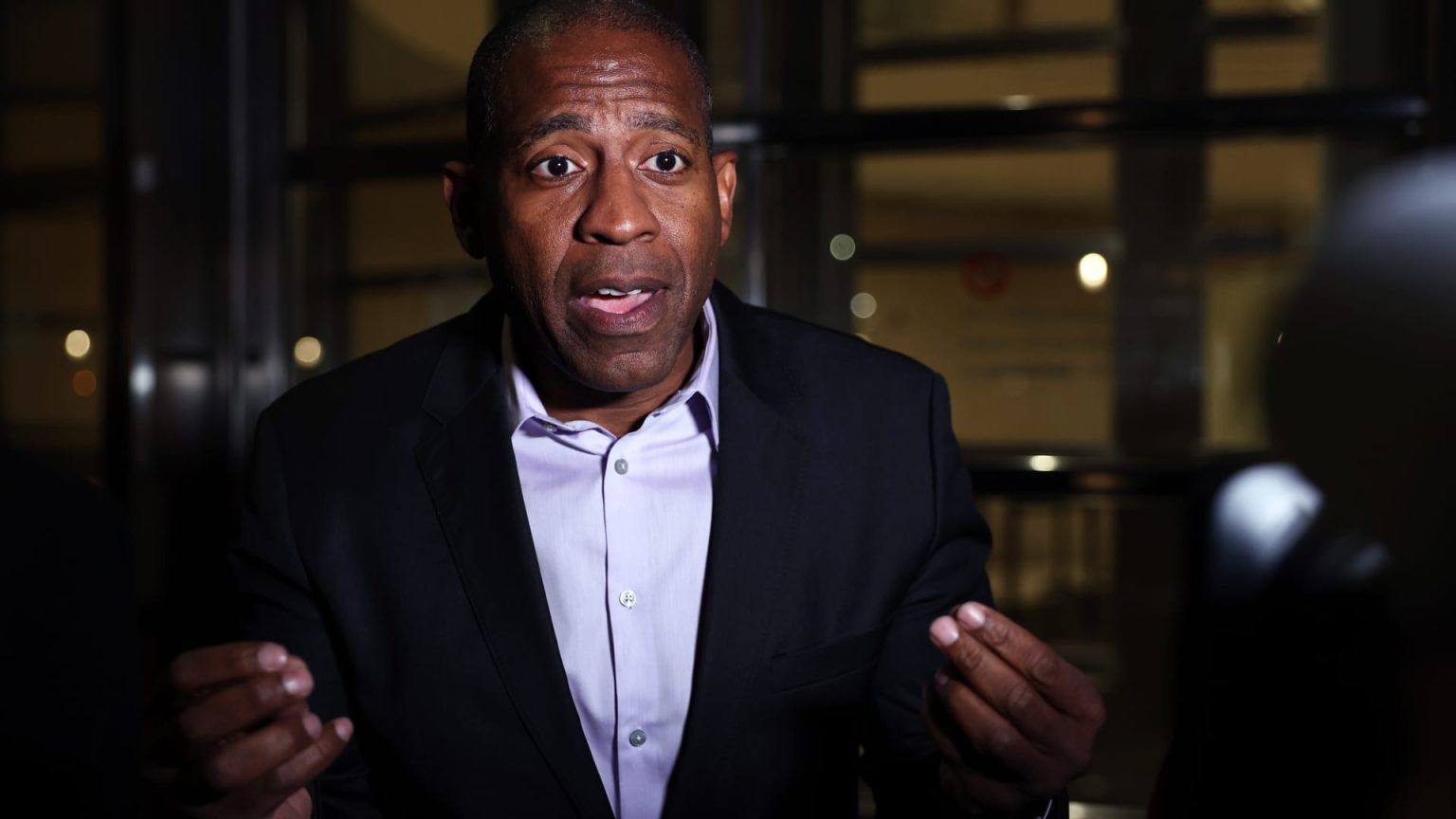In a surprising turn of events, Ozy Media co-founder Carlos Watson received a commutation of his prison sentence from former President Donald Trump, just hours before he was set to report to prison. Watson had been sentenced to 116 months for his involvement in a multi-million-dollar fraud scheme related to his media startup, which falsely claimed partnerships with high-profile figures and entities. The decision to commute his sentence has sparked a wave of discussions around justice and redemption, igniting conversations about the future of criminal justice reform.
| Article Subheadings |
|---|
| 1) Background of Ozy Media and Carlos Watson |
| 2) Details of the Fraud Scheme |
| 3) The Sentencing and Legal Proceedings |
| 4) Trump’s Commution Decision |
| 5) Reactions to the Commutation |
Background of Ozy Media and Carlos Watson
Ozy Media, launched in 2013 by Carlos Watson and his associates, positioned itself as a digital platform focused on news, entertainment, and inspiring stories. The startup quickly gained traction, enticing a diverse audience with its unique content and fresh approach to media. However, the company’s ambitious strategies and growth plans led to a complicated web of business dealings that ultimately became their downfall. Over the years, Watson presented himself as an influential figure in media, thereby increasing both his visibility and the pressure to deliver financial success. This backdrop set the stage for the legal troubles that would soon ensue.
Details of the Fraud Scheme
Between 2018 and 2021, authorities uncovered a fraudulent scheme orchestrated by Watson and his co-conspirators designed to mislead investors and financial institutions. The allegations revealed that they misrepresented Ozy Media’s financial health, claiming more lucrative contracts and business relationships than existed. Among the most egregious acts was the impersonation of a YouTube executive during a crucial call with Goldman Sachs, a move aimed at securing a significant investment. The scheme not only defrauded investors of millions but also undermined trust within the media industry, leading to the eventual cessation of Ozy Media’s operations in 2021.
The Sentencing and Legal Proceedings
Watson was ultimately convicted in 2024 after a trial that unraveled the full scope of his fraud. He faced multiple charges, including conspiracy to commit securities fraud and aggravated identity theft. The sentencing revealed a troubling narrative of deception that spanned years, leaving both individual investors and partners in dire financial straits. During the sentencing, then-Brooklyn U.S. Attorney Breon Peace emphasized the far-reaching impact of Watson’s actions on the victims, stating, “Carlos Watson orchestrated a years-long, audacious scheme to defraud investors and lenders to his company.”
Trump’s Commution Decision
In a surprising decision, President Trump commuted Watson’s sentence shortly before he was to begin serving time. This unexpected turn has reignited debates on presidential clemency and the factors influencing such decisions. Trump’s move not only absolved Watson of his prison sentence but also lifted the accompanying civil penalties, which included a hefty financial restitution order. According to White House officials, the rushed decision came as a means to address what Trump termed a “grave injustice” against Watson.
Reactions to the Commutation
The immediate response to the commutation was mixed, with many expressing skepticism about the motivations behind Trump’s actions. Proponents of criminal justice reform celebrated the decision as a triumph for second chances and redemption, while critics questioned the implications of such a high-profile clemency. Glenn Martin, a prominent criminal justice reform advocate, took to social media to express gratitude, highlighting the role of figures like Alice Marie Johnson—a symbol of reform herself. Their collective voices underscored the broader movement advocating for re-evaluating justice policies aimed at fostering rehabilitation rather than punishment.
| No. | Key Points |
|---|---|
| 1 | Carlos Watson was co-founder of Ozy Media, a platform that gained attention before its downfall. |
| 2 | Watson was involved in a fraudulent scheme that misled investors and financial institutions. |
| 3 | He was sentenced to 116 months in prison for these crimes, including securities fraud. |
| 4 | Former President Trump commuted his sentence just hours before his scheduled surrender. |
| 5 | Reactions to the commutation reveal broader discussions on criminal justice reform. |
Summary
The recent commutation of Carlos Watson‘s sentence marks a significant moment in discussions around justice, redemption, and the power dynamics of clemency. As debates unfold regarding the implications of such high-profile decisions, Watson’s case serves as a critical juncture in the ongoing dialogue of criminal justice reform. While some view this action as a step toward fairness and second chances, others remain skeptical about its broader consequences.
Frequently Asked Questions
Question: What charges was Carlos Watson convicted of?
Carlos Watson was convicted of conspiracy to commit securities fraud, conspiracy to commit wire fraud, and aggravated identity theft.
Question: How did the fraud scheme affect investors?
The scheme misrepresented Ozy Media’s financial status, defrauding investors and financial institutions out of millions, leading to significant losses.
Question: What is the significance of Trump’s commutation decision?
The commutation removed Watson’s prison sentence and financial penalties, stoking discussions on justice reform, fairness, and the implications of clemency for high-profile figures.


